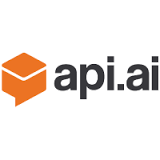 This past fall Google acquired the natural language startup Api.ai. The team at Api.ai started out offering Speaktoit, a “Siri alternative” on the Android platform back in 2010. The Speaktoit assistant proved extremely popular. Users found that the assistant could understand natural language commands to help them with daily tasks and provide some entertainment.
This past fall Google acquired the natural language startup Api.ai. The team at Api.ai started out offering Speaktoit, a “Siri alternative” on the Android platform back in 2010. The Speaktoit assistant proved extremely popular. Users found that the assistant could understand natural language commands to help them with daily tasks and provide some entertainment.
In 2014 the company recognized the value in the platform and underlying technology behind their successful assistant. They rebranded themselves as Api.ai and offered up a complete suite of tools enabling developers to create their own natural language driven applications.
The Api.ai platform offered all the components a developer would need to voice-enable their application: automatic speech recognition, natural language processing, and intent fulfillment. Developers used Api.ai’s graphical tools to load in possible user utterances and then map each input to a corresponding action within their application. By the time Facebook unleashed the Age of the Chatbot in March 2016, Api.ai already had the platform to support bot developers, just as it supported voice developers.
Facebook was perhaps even more prescient than Google in understanding the value of a easy-to-use platform for building conversational applications. Wit.ai competes with Api.ai, offering a suite of tools offering very similar capabilities. Facebook acquired Wit.ai in January of 2015, more than a year before the announcement of their bot framework caused powerful ripples throughout the world of conversational commerce.
Both Facebook and Google want to make it easy for brands and independent developers to create conversational experiences that run within their competing ecosystems. At present, both Wit.ai and Api.ai remain separate and identifiable platforms. Facebook recommends Wit.ai for Messenger bot developers looking for a quick and reliable way to build text-based conversational bots that understand user intent.
Google has integrated Api.ai much more prominently into its Software Development Kit (SDK). Action developers are instructed to create an Api.ai agent as the first step in the process of creating their action. By comparison, when Amazon released its Alexa SDK well over a year ago, there was no graphical UI to support developers in the creation of custom intents. Amazon has continued to improve the Alexa SDK and make it easier for third party developers to create skills.
Meanwhile, there is no shortage of third-party chatbot developer toolkits that feature “connectors” to the popular delivery platforms, be it for metabots like Alexa or Google Home Assistant, as well as for messaging platforms.
Facebook, Google, and Amazon are just starting what could turn out to be a long and hard-fought battle to control the world of software-mediated conversations. If success is determined by having the most third party developers, then offering great development tools is a critical key to success. Google’s integration of Api.ai into its Actions SDK positions it well for the battle ahead.
Categories: Conversational Intelligence, Intelligent Assistants

 2025 Conversational AI Intelliview: Decision-Makers Guide to Self-Service & Enterprise Intelligent Assistants
2025 Conversational AI Intelliview: Decision-Makers Guide to Self-Service & Enterprise Intelligent Assistants  Talk to the Web: How NLWeb Opens Conversational Access to Site Content
Talk to the Web: How NLWeb Opens Conversational Access to Site Content  Voice AI Agents Redefine CX: Trends, ROI, and Strategies for 2025
Voice AI Agents Redefine CX: Trends, ROI, and Strategies for 2025  Why Voice AI Is Foundational for Enterprise Innovation (Webinar)
Why Voice AI Is Foundational for Enterprise Innovation (Webinar)